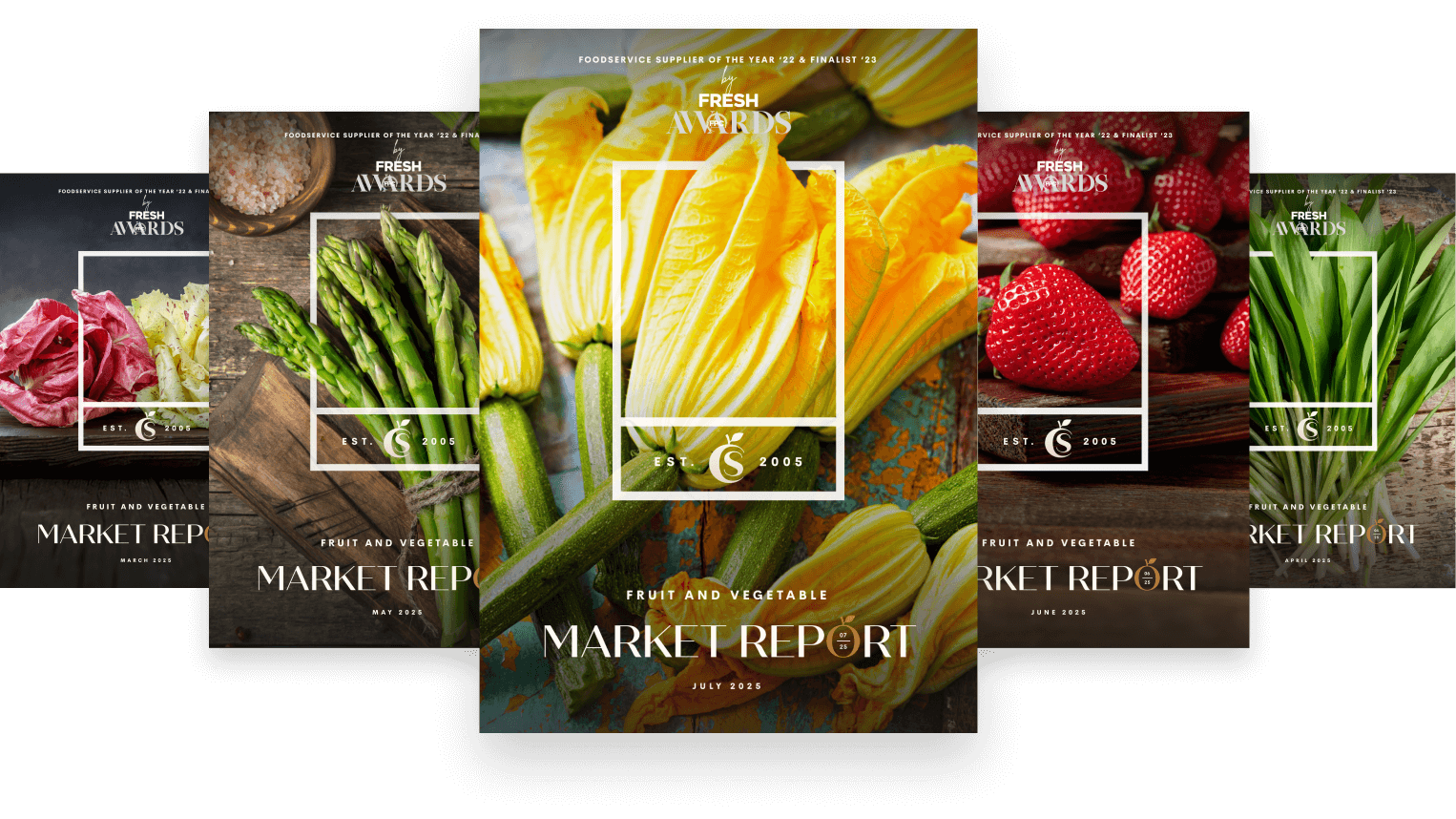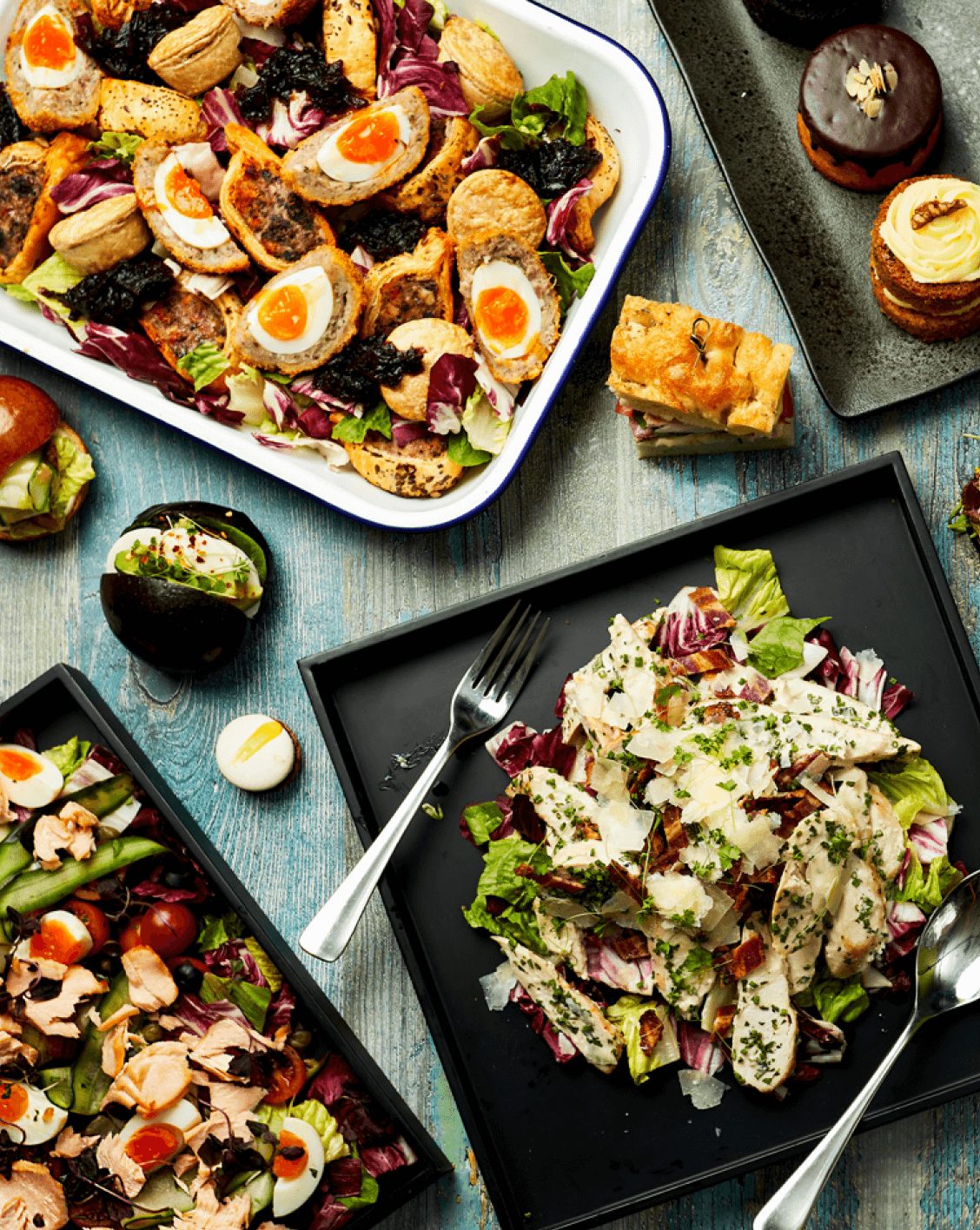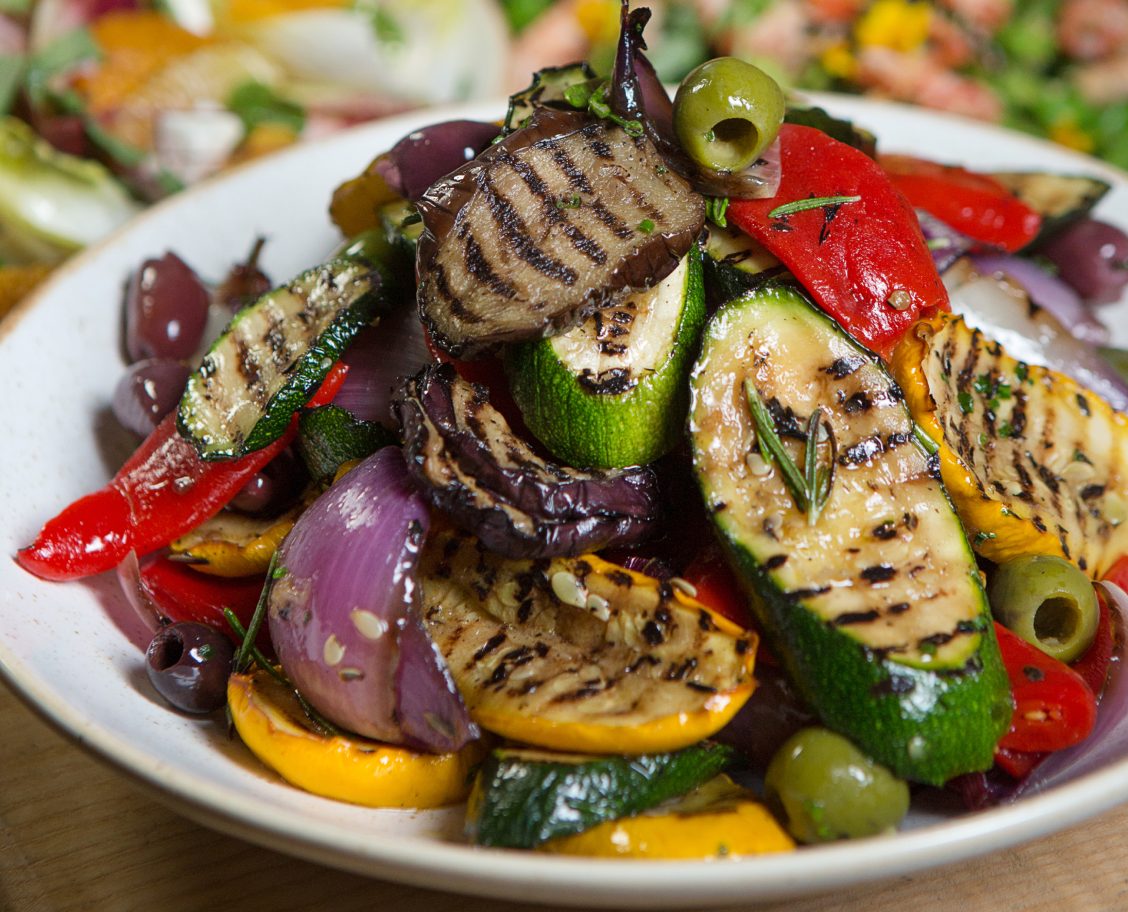

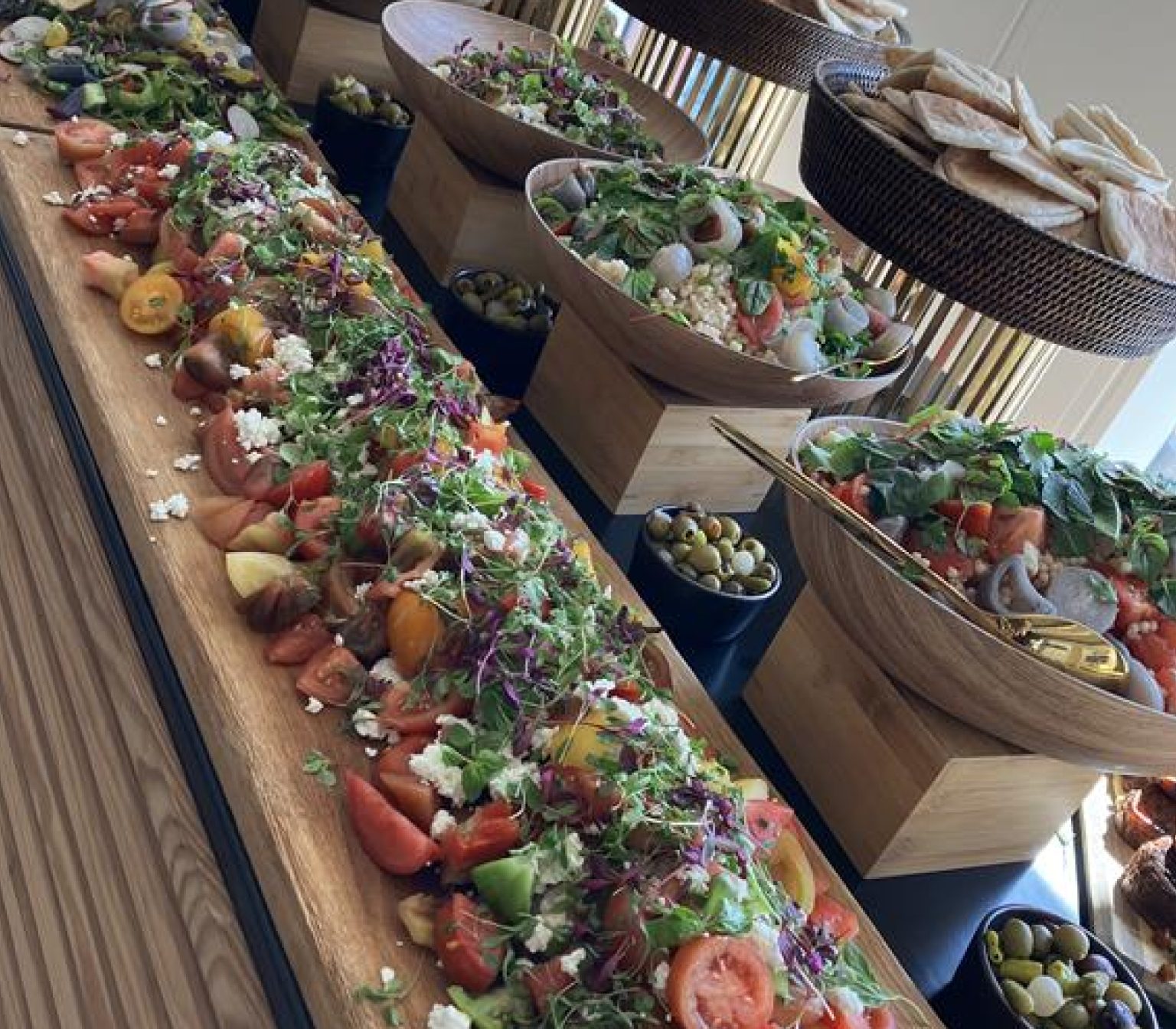
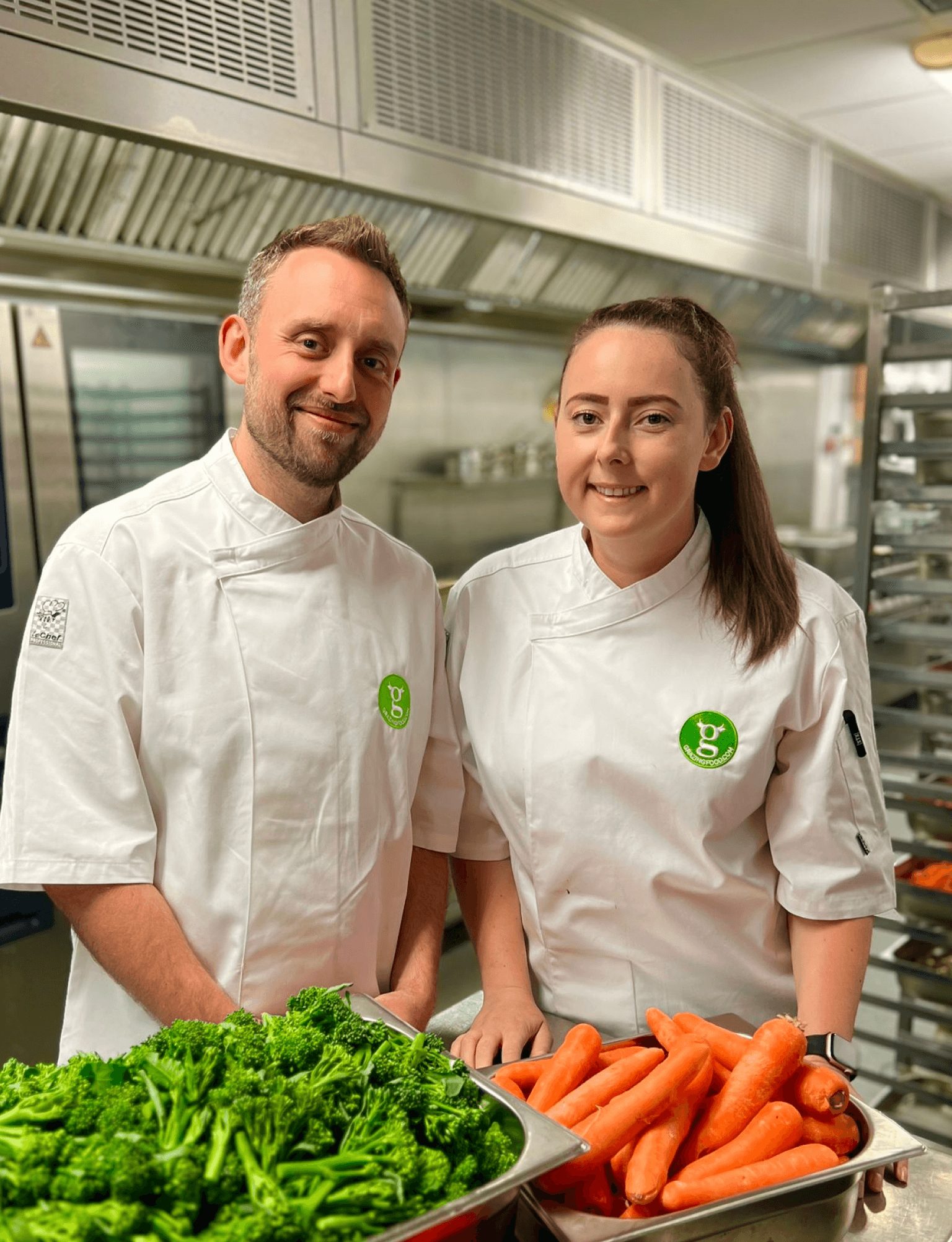
GRAZING
From daily all-staff lunches and ad-hoc meetings to large–scale events, Grazing is one of London’s leading contract caterers – offering flexible in-catering solutions, sustainability delivered to venues and workplaces across the Capital.
To celebrate the start of the new season, we interview Grazing’s Founder & CGO (Chief Grazing Officer), Sam Hurst, on the importance of using the finest seasonal fresh produce, the challenges of catering for a vast array of dietary requirements at large-scale events and Grazing’s ongoing commitment to ethical and environmental sustainability.
Sam, can you tell us about the history of Grazing, how it came about and the service you and the team provide.
I’ve always loved food. My mum wrote cookbooks and, as a teenager, I had a job as a chef in a local restaurant. After completing my degree in hotel and catering management, I fell into a job in hotel development which took me all over the world – everywhere from service stations on the M1 to retreats in the Galapagos Islands. But, after travelling, I was desperate to get back into the kitchen. So, I hung up my suit and Grazing was born.
Originally, we wanted to provide fresh table food in a quick service environment on the High Street. So, we opened our first café in the City in 2007, followed by one at the Design Museum and another in the basement of an office block. But as the recession hit, we found ourselves providing more delivery orders rather than a growing demand for more cafés. So, in 2009, we created a website where customers could order sandwiches online and we also started to take on larger-scale corporate events. The rest, as they say, is history!
What would you say are the main (logistical) differences in providing office catering vs. one-off events?
Usually, the two go hand in hand. Monday to Friday, we feed people in the workplace and it’s usually the same corporate customers that use us for their larger-scale events. But we also work with venues across London, like any other event caterer. Either way, everything is produced from our central production kitchen. We cook the food, do all the heavy lifting, send it out to the client’s office or venue and then provide the finishing and service on site.



What type of customers and employees do you typically cater for?
Everything and everyone, right across the board! For daily, all-staff office catering, it ranges from tech companies through to insurance and reinsurance, financial services and banking. For larger events, we’ve worked with companies like BT and Meta.
However, our online ordering platform is available for anyone requiring sandwiches or finger food to be delivered. There’s no commitment. It can be a one-off order or requested daily, weekly or monthly.
Would you say offices are now ‘back’ to pre-pandemic levels and is in-house catering seen as a perk?
Over the past two years, we have definitely seen a move back to the office and we now have companies insisting on staff being in the office three to four days a week. I think there’s been a fundamental shift in the workplace too. Previously, free staff lunches were often seen as an office perk. Then COVID came along, and everything changed. Companies started to offer lunch as a way of encouraging people back into the workplace and this coincided with fuel bills rocketing at home.
And, here at Grazing, we’re set up to cater for offices and companies who don’t want to go down the traditional route of contract catering and pay for on-site chefs five times a week. Our food is cooked off-site and delivered in, which works well for the smaller offices that are looking for restaurant quality food, without the requirement for any large-scale facilities.
How important is the use of seasonal fresh produce in your menus and how does that impact your menu planning?
Seasonality is massively important. We have a brilliant Chef Director, Sebastian Price, who’s been with us for over 12 months and a great Group Head Chef, Francesca Merrit. They’re always planning our menus around what’s in season and available.
But, as well as planning in line with the seasons, we always try to source locally too. Why air freight in tomatoes at the wrong time of year when we can get perfectly good ones from Europe by road? Or, in fact, do we even need tomatoes on the menu this week? Can we change it to another seasonal fruit? We’re constantly thinking like that.
Your commitment to ethical and environmental sustainability is one of the things you’re known for. For example, we love that you deliver only on electric bikes and ask that all produce is decanted. Can you tell us more about why this is so important to you?
Yes, we’re incredibly sustainably focused. We want to do business in the most responsible way. So, our energy use is all renewable and we don’t use any single plastic. Everything is plant-based, so it’s all compostable.
Recycling is fundamental to what we do. 95% of our deliveries are now sent via electric cargo bikes with zero emissions. They’re faster, result in less congestion and are better for the planet. We source our suppliers carefully too. We never aim to find the cheapest solution to things. Instead, we try to find the best and most sustainable solution.

How do you deal with special dietary requirements when providing for large-scale customers?
Whether you’re feeding 50 people a day or 500, you need to have enough choices on the menu to cater for everyone.
Since we started, we’ve seen an increase in the number of vegans and gluten intolerant people and other dietary requirements. So, catering for specific requirements is now part of what we do on a day-to-day basis. Whether we’re creating menus for our contract sites or for a one-off, large-scale event, we always ensure there’s enough choice to cater for everybody.
For example, we’re always going to offer a meat choice, a fish choice, a vegetarian choice plus vegan, dairy-free and gluten free options too. Then, if there are more specific requirements outside of those, we’ll cater for them too. We once catered lunch for 17 people with 17 different dietary requirements! But nothing is ever a problem – we can always sort it!
What’s the work schedule for your chefs?
Our chefs are always working at least one day ahead. So, they’ll prepare the food. Then, it’s cooked and served the following day. Shifts start from 6am with the first deliveries leaving at 7am, and then we aim to wrap up around 4-5pm. That’s Monday to Friday. So, they’re pretty social hours for chefs!
And we work in some beautiful offices around London. We are lucky to have clients who have got offices on the 24th floor of buildings with fantastic views across London. We’re listed at nice venues too – from the top of the Shard through to Old Billingsgate Market. Even though the hours are consistent, venue and delivery wise, no two days are ever the same.
Finally, what’s next for Grazing?
Well, we want to continue growing at a steady pace. After the pandemic, as things started to return to normal, we grew incredibly quickly. But our aim is always to be the best, not the biggest.
In 2019, we acquired a small event catering company – Pepper Grape – and we bolted that onto our existing Grazing events business. We’d certainly look to grow the business through acquisition again, if there was a good strategic fit.
This year, we might look at taking on new sites, new contracts and more events but we’ll be cautious about how quickly we can do that. Either way, we don’t like to stand still!
Introducing the County Supplies Customer Series
Here at County Supplies, we’ve been supplying London’s leading chefs with fresh produce since 2005. Today, we’re proud to supply more than 600 customers – from schools and event caterers through to film sets and Michelin star restaurants – with over 2,500 produce lines including fruits, vegetables, dairy, dry and frozen.
Our new customer spotlight series showcases some of the UK’s leading chefs and explores the wide variety of customers they cater for, the importance of incorporating seasonal foods into their menus and their commitment to using only the finest fresh produce.
